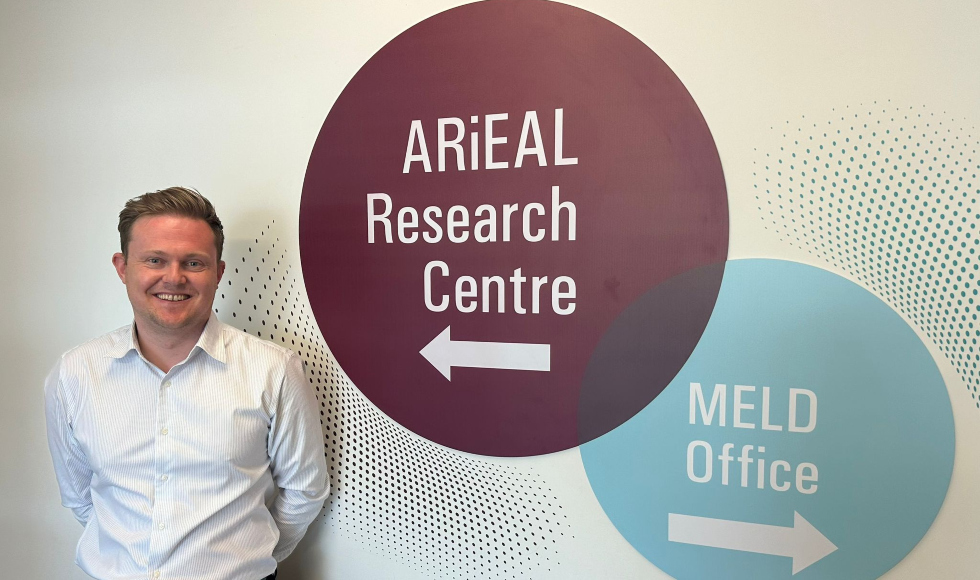McMaster’s English Language Development program finds reading speed growth is a predictor of academic success

Daniel Schmidtke, Research Associate at the McMaster English Language Development (MELD) program and an affiliated researcher at The Centre for Advanced Research in Experimental and Applied Linguistics (ARiEAL).
BY Nadia Lana
July 24, 2024
Like many postsecondary English-language bridging programs, McMaster’s English Language Development (MELD) program teaches English language skills to incoming undergraduate students. Unlike other bridging programs, though, it also carries out research on language skill growth — something that’s become key to improving MELD students’ success as they move from the year-long MELD program into their regular degree studies.
Through that work, researchers have found that a key element of students’ success is the development of strong reading skills.
“We’ve always tried to understand the skills that support reading and tried to build those skills in the program,” says Anna Moro, professor in the Linguistics and Languages department and MELD’s program director.
“We’ve made several changes in the program as a result of this research that we’ve conducted on our students year after year to try to see what works, what doesn’t. What this did is solidify even more how important reading is. In 2020, we explicitly anchored the entire program to reading development.”
Now, a new study is building on the reading research that has become the hallmark of the MELD program.
Funded by a Social Sciences and Humanities Research Council’s Insight Development Grant, Daniel Schmidtke, Research Associate at MELD, is carrying out a longitudinal study tracking English as an additional language (EAL) students’ reading skill growth during the program and after — and assessing whether better reading skills lead to higher GPAs during their undergraduate degree studies.
“Reading is known to be a really important skill for academic performance. But there’s very little research on EAL students,” Schmidtke says.
“We wanted to look at their reading skill growth during the MELD program, and then follow up and look at their GPAs afterwards, with the goal of seeing whether reading matters for the GPAs and specifically whether reading growth during the program matters for their later GPAs.”
Students’ progress is measured using eye-tracking technology and various language assessments.
Here, Schmidtke shares a little more about their findings so far.
What did you find?
“We used a data-driven statistical approach that ranks which types of language skill growth are the best predictors of future GPAs. We considered changes in lots of skills, including vocabulary, reading comprehension, reading speed, and spelling ability.
Interestingly, we found that it was reading speed growth that was an especially high-ranking predictor of future GPAs. This is a significant finding because it shows that growth during MELD impacts future academic performance.”
Why might reading speed be important?
“There might be lots of reasons for that, including lecture slides or timed exams. They have to learn to read very quickly – something that speakers of English as a first language take for granted.”
What about reading skills gained after the program?
“We’ve also been following the language skills of MELD students after they complete the MELD program. What we’re finding is that the more gains that you make in your individual skills during the MELD program, the better you will be at this skill at the end of undergrad. So in reading comprehension, the more you gain in your reading comprehension during your eight months in the MELD program, the better you will be in reading comprehension at the end of undergraduate studies. It seems that MELD is impactful. It matters for the students.”
What are you working on next?
“We’re taking some of the methods that have been used to research language development in MELD and applying it to a different context. Taking it further – focusing on phonological decoding skills during reading – and applying it to a different language learning context, at Mohawk College.
Read about Schmidtke’s appointment as the inaugural College Student Success Innovation Centre (CSSIC) Research Fellow, where he will be leading a research project with Mohawk College’s English for Academic Purposes (EAP) program.


